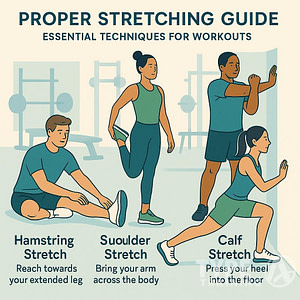If you’re looking for a way to lose weight, improve your health, and simplify your eating habits, intermittent fasting might be the answer. Intermittent fasting is a popular eating pattern where you cycle between periods of eating and fasting. It’s been shown to have a range of benefits, from weight loss to improved blood sugar control.
Intermittent fasting isn’t a new concept. Humans have been fasting for centuries, whether for religious or cultural reasons. But in recent years, it’s gained popularity as a weight loss and health strategy. There are several different types of intermittent fasting, each with its own unique benefits and drawbacks. Some people fast for 16 hours a day, while others fast for 24 hours once or twice a week.
As with any new eating plan, it’s important to do your research and talk to your doctor before starting intermittent fasting. But if you’re looking for a way to simplify your eating habits, lose weight, and improve your health, intermittent fasting might be worth considering. As one expert explains, “Intermittent fasting is not a diet, it’s a pattern of eating. It’s a way of scheduling your meals so that you get the most out of them.”
What is Intermittent Fasting?
Popular posts:
Intermittent fasting (IF) is a type of eating pattern that involves alternating periods of fasting and eating. It is not a diet but rather an eating pattern. There are different ways to do intermittent fasting, but the most common ones are the 16/8 method, the 5:2 diet, and the eat-stop-eat method.
How does Intermittent Fasting work?
Intermittent fasting works by reducing the number of calories you consume. When you fast, your body uses stored fat as energy, which leads to weight loss. Fasting also reduces insulin levels, which can help lower the risk of diabetes and improve insulin sensitivity.
What can you eat during Intermittent Fasting?
Intermittent fasting does not specify which foods you should eat but rather when you should eat them. During the eating period, you can eat whatever you want, but it is recommended to eat healthy and nutritious foods to get the most benefits from IF.
What are the benefits of Intermittent Fasting?
Intermittent fasting has several health benefits, including weight loss, improved insulin sensitivity, reduced inflammation, and lower risk of chronic diseases such as diabetes, heart disease, and cancer. IF can also improve brain function and increase lifespan.
Research on Intermittent Fasting
Several studies have shown the benefits of intermittent fasting. A study published in the New England Journal of Medicine found that intermittent fasting can lead to weight loss and improve insulin sensitivity. Another study published in the Journal of Nutritional Biochemistry found that IF can reduce inflammation and oxidative stress, which can lower the risk of chronic diseases.
Intermittent Fasting and Diabetes
Intermittent fasting can be beneficial for people with diabetes. A study published in the Journal of Diabetes and Metabolic Disorders found that IF can improve insulin sensitivity and lower blood sugar levels. However, people with diabetes should consult their doctor before starting IF.
Nutrition and Intermittent Fasting
It is important to eat healthy and nutritious foods during the eating period of IF to get the most benefits from it. You should eat foods that are high in protein, fiber, and healthy fats and avoid processed and sugary foods.
Water and Intermittent Fasting
It is important to stay hydrated during the fasting period of IF. You should drink plenty of water and other non-caloric beverages such as tea and coffee.
Calories and Intermittent Fasting
Intermittent fasting works by reducing the number of calories you consume. It is important to eat enough calories during the eating period to avoid malnutrition and other health problems.
Insulin and Intermittent Fasting
Intermittent fasting can lower insulin levels, which can improve insulin sensitivity and reduce the risk of diabetes. However, people with diabetes should consult their doctor before starting IF.
Insulin Levels and Intermittent Fasting
Intermittent fasting can lower insulin levels, which can improve insulin sensitivity and reduce the risk of diabetes. However, people with diabetes should consult their doctor before starting IF.
Types of Intermittent Fasting
There are different types of intermittent fasting, including the 16/8 method, the 5:2 diet, and the eat-stop-eat method. Each method has its own benefits and drawbacks, and you should choose the one that works best for you.
“Intermittent fasting is an eating pattern that cycles between periods of fasting and eating. It doesn’t specify which foods you should eat but rather when you should eat them.” – Healthline
Sources
- Intermittent Fasting 101 — The Ultimate Beginner’s Guide
- What Is Intermittent Fasting? A Detailed Beginner’s Guide
- Intermittent Fasting: What is it, and how does it work?
How Intermittent Fasting Works
Image Credit: https://keto-mojo.com
Intermittent fasting is an eating pattern that involves cycling between periods of fasting and eating. This eating pattern has gained popularity in recent years due to its potential health benefits, including weight loss, improved metabolic health, and reduced inflammation.
The science behind how intermittent fasting affects the body
Intermittent fasting works by changing the body’s hormone levels, gene expression, and cellular repair processes. When you fast, your body goes into a state of ketosis, which means it starts burning fat for fuel instead of glucose. This process can lead to weight loss and improved insulin sensitivity.
According to a study published in the New England Journal of Medicine, intermittent fasting can also reduce inflammation in the body, which is linked to many chronic diseases such as heart disease, cancer, and diabetes.
Another study published in the Journal of the Academy of Nutrition and Dietetics found that intermittent fasting can lead to a decrease in body weight, body fat, and waist circumference. It can also improve
Tips for getting started with intermittent fasting
If you’re new to intermittent fasting, it’s important to start slowly and gradually increase your fasting periods. Here are some tips to help you get started:
- Choose a fasting method that works for you: There are several different types of intermittent fasting, including the 5:2 diet, alternate-day fasting, eat-stop-eat diet, warrior diet, and 16:8 method. Choose the method that works best for your lifestyle and schedule.
- Start with a short-term fast: If you’re new to fasting, start with a 12-hour fast and gradually increase the fasting period to 14 hours, then 16 hours.
- Stay hydrated: Drink plenty of water and other non-caloric beverages during your fasting periods to stay hydrated.
According to Dr. Jason Fung, a nephrologist and author of “The Complete Guide to Fasting,” “Intermittent fasting is not a diet, it’s a lifestyle. It doesn’t require you to give up any particular food group or count calories. It’s about when you eat, not what you eat.”
Sources:
Different Types of Intermittent Fasting
Intermittent fasting is an eating pattern that cycles between periods of fasting and eating. There are different types of intermittent fasting, and each has its unique approach. Here are some of the most popular types:
5:2 Diet
The 5:2 diet involves eating normally for five days a week and restricting calorie intake to 500-600 calories for two non-consecutive days. This type of intermittent fasting is flexible and easy to follow. However, it may lead to hunger and side effects such as headache, fatigue, and irritability.
Sources: Healthline, Medical News Today
Alternate Day Fasting
Alternate day fasting involves fasting every other day and eating normally on non-fasting days. This method may lead to significant weight loss, but it may also cause hunger, fatigue, and irritability. It is not recommended for pregnant women or people with certain medical conditions.
Sources: Cleveland Clinic, One Planet Nutrition
Time-Restricted Eating (16/8 method) – Most Popular
Time-restricted eating involves limiting eating to a specific time window each day, usually 8-10 hours, and fasting for the remaining hours. The 16/8 method is the most popular, which involves fasting for 16 hours and eating within an 8-hour window. This method is easy to follow and may lead to weight loss, improved blood sugar control, and other health benefits.
Weekly 24-Hour Fast
The weekly 24-hour fast involves fasting for 24 hours once a week and eating normally for the rest of the week. This method may lead to weight loss and other health benefits, but it may also cause hunger, fatigue, and irritability.
Sources: Medical News Today, Dave Asprey
Eat-Stop-Eat Diet
The Eat-Stop-Eat diet involves fasting for 24 hours once or twice a week and eating normally on non-fasting days. This method may lead to weight loss, improved insulin sensitivity, and other health benefits. However, it may also cause hunger, fatigue, and irritability.
Sources: Healthline, Medical News Today
Warrior Diet
The Warrior diet involves eating one large meal at night and fasting during the day. This method may lead to weight loss and other health benefits, but it may also cause hunger, fatigue, and irritability.
Sources: Dave Asprey, Cleveland Clinic
“Intermittent fasting is not a diet, it’s a pattern of eating. It’s a way of scheduling your meals so that you get the most out of them.” – Dr. Jason Fung
Source: Healthline
Benefits of Intermittent Fasting
Intermittent fasting is an eating pattern where you limit your food consumption to certain hours of the day. This approach has become more popular in recent years due to the numerous health benefits associated with it. In this section, we will discuss some of the benefits of intermittent fasting.
Weight Loss
Intermittent fasting can help you lose weight by reducing your calorie intake. When you fast, you eat fewer meals, which means you consume fewer calories. According to a study published in the International Journal of Obesity, intermittent fasting can help you lose weight by reducing body fat and preserving lean body mass.
Sources:
- Intermittent Fasting 101 – Healthline
- 10 Evidence-Based Health Benefits of Intermittent Fasting – Healthline
- Intermittent Fasting: Surprising Update – Harvard Health Blog
Improved Blood Sugar Levels
Intermittent fasting can also improve your blood sugar levels. When you fast, your body uses up stored glucose, which can help lower your blood sugar levels. According to a study published in the Journal of Clinical Investigation, intermittent fasting can improve insulin sensitivity and reduce the risk of type 2 diabetes.
Sources:
- Intermittent Fasting: What You Need to Know – WebMD
- Intermittent Fasting: Benefits, Drawbacks, and How To Do It – Medical News Today
- Intermittent Fasting: What are the benefits? – Mayo Clinic
Increased Energy and Focus
Intermittent fasting can also help increase your energy levels and improve your focus. When you fast, your body produces more ketones, which are chemicals that can help improve brain function. According to a study published in the Journal of Neurochemistry, intermittent fasting can improve cognitive function and protect against neurodegenerative diseases.
Sources:
- The Ultimate Intermittent Fasting Guide for Beginners – Dave Asprey
- A Beginner’s Guide to Intermittent Fasting – University of Michigan
- Intermittent Fasting: Benefits, Risks, and How to Do It – Healthline
Reduce Inflammation and Oxidative Stress
Intermittent fasting can also help reduce inflammation and oxidative stress in your body. When you fast, your body produces fewer free radicals, which are molecules that can damage your cells. According to a study published in the Journal of Nutritional Biochemistry, intermittent fasting can reduce inflammation and oxidative stress and improve overall health.
Sources:
- A Beginner’s Guide to Intermittent Fasting – University of Michigan
- Intermittent Fasting: Benefits, Risks, and How to Do It – Healthline
“Intermittent fasting can be a safe and effective way to lose weight and improve overall health.” – Krista Varady, PhD, Associate Professor of Nutrition at the University of Illinois at Chicago.
Maintaining Your Diet During Intermittent Fasting
When you are practicing intermittent fasting, it is important to maintain a healthy and balanced diet during the feeding window to ensure that your body is getting the nutrients it needs. Here are some tips on what to eat and what to avoid during intermittent fasting.
What to Eat During the Feeding Window
During the feeding window, it is important to focus on nutrient-dense foods that will keep you full and satisfied. Some examples of healthy foods to eat during intermittent fasting include:
- Healthy fats: such as avocados, nuts, and olive oil
- Lean protein: such as chicken, fish, and tofu
- Fiber-rich foods: such as fruits, vegetables, and whole grains
Sources:
Sample Meal Plans and Recipes
If you are new to intermittent fasting, it can be helpful to have some meal plans and recipes to follow. Here are some examples of healthy meals that you can eat during the feeding window:
- Grilled chicken with roasted vegetables and quinoa
- Salmon with sweet potato and broccoli
- Tofu stir-fry with brown rice and mixed vegetables
Sources:
- Verywell Fit
What to Avoid
During the feeding window, it is important to avoid processed foods, sugary drinks, and foods high in saturated fats. These foods can lead to weight gain and other health problems.
Sources:
The Importance of Staying Hydrated
Staying hydrated is important during intermittent fasting. Drinking water, herbal tea, and other non-caloric beverages can help you feel full and reduce cravings. It is important to avoid sugary drinks and alcohol during the fasting and feeding windows.
“Drinking water is essential for overall health and can help you stay on track with your intermittent fasting goals.” – Harvard Health Publishing
Sources:
Intermittent Fasting and Health
Intermittent fasting is a popular eating pattern that can offer numerous health benefits. However, it is important to understand the potential side effects, long-term effects, who should avoid them, and tips for staying safe while fasting.
Potential Side Effects
While intermittent fasting can be safe for most people, some may experience side effects such as headaches, fatigue, and dizziness. These symptoms are often temporary and can be alleviated by drinking plenty of water and eating nutritious foods during eating periods.
Long-Term Effects
Intermittent fasting may also have long-term effects on your health. Studies have shown that it can improve blood sugar control, reduce the risk of type 2 diabetes, and promote cellular repair. It may also increase metabolic rate and lead to a longer life.
Who Should Avoid Intermittent Fasting
Intermittent fasting is not recommended for everyone. It may not be suitable for pregnant or breastfeeding women, people with a history of eating disorders, or those taking certain medications. If you have any concerns, it is best to consult with your healthcare provider before starting an intermittent fasting regimen.
Tips for Staying Safe While Fasting
To stay safe while fasting, it is important to stay hydrated by drinking plenty of water and calorie-free drinks such as herbal teas. You should also avoid consuming large amounts of carbohydrates during eating periods, as this can reduce the benefits of fasting. Additionally, it is important to listen to your body and stop fasting if you experience any negative side effects.
According to Dr. Krista Varady, a nutrition researcher at the University of Illinois at Chicago, “Intermittent fasting is a promising approach to weight loss and improving overall health, but it’s important to approach it safely and with caution.”
Sources:
- Healthline – Intermittent Fasting Guide
- Mayo Clinic – Intermittent Fasting: What are the Benefits?
- Medical News Today – Six ways to do intermittent fasting: The best methods
How to Stay Motivated and Stick with Intermittent Fasting
Intermittent fasting is a lifestyle change that can be challenging to maintain. However, with the right mindset and strategies, you can stay motivated and on track. Here are some tips to help you stay committed to your intermittent fasting journey.
Strategies for Staying Motivated and on Track
- Set realistic goals: Start with small, achievable goals and gradually increase them. This will help you stay motivated and avoid feeling overwhelmed.
- Find an accountability partner: Having someone to share your progress with can help keep you motivated and accountable. This could be a friend, family member, or even an online community.
- Plan your meals: Planning your meals ahead of time can help you stay on track and avoid making impulsive food choices. Use a meal planner or app to make meal planning easier.
Sources: Women’s Health, Healthline, Medical News Today
Common Challenges and How to Overcome Them
- Hunger pangs: Hunger pangs are common during fasting periods. Stay hydrated by drinking plenty of water and other calorie-free beverages. You can also try chewing gum or drinking herbal tea to help curb hunger.
- Social situations: Eating with friends or family can be challenging when you’re fasting. Plan ahead and bring your own food or suggest a restaurant that offers fasting-friendly options.
- Plateaus: Weight loss plateaus are common during intermittent fasting. Try changing up your fasting schedule or incorporating more physical activity into your routine.
Sources: Medical News Today, Dummies
How to Track Progress and Stay Accountable
- Keep a food diary: Tracking what you eat can help you stay accountable and identify areas for improvement. Use a journal or app to keep track of your meals and snacks.
- Use a fasting app: There are many apps available that can help you track your fasting schedule and progress. Some popular options include Zero and FastHabit.
- Take progress photos: Taking before and after photos can help you see your progress and stay motivated. Make sure to take photos in the same lighting and clothing for accurate comparisons.
Sources: Healthline, Medical News Today, Women’s Health
“The key to success with intermittent fasting is to be consistent and patient. Don’t expect results overnight, but trust the process and stay committed.” – Dr. Jason Fung, author of “The Complete Guide to Intermittent Fasting”
Source: Healthline
Safety and Professional Guidance
When starting intermittent fasting, it is important to consult with a dietitian nutritionist to ensure that you are getting all the necessary nutrients and to manage any medical conditions. Here are some tips to help you stay safe and healthy while fasting:
Consulting Dietitian Nutritionist
A dietitian nutritionist can help you create a personalized plan that works for you and your lifestyle. They can also help you manage any medical conditions you may have, such as arthritis, insomnia, or nausea. They can also provide guidance on how to restrict calories and still get all the necessary nutrients.
Sources:
- Academy of Nutrition and Dietetics
- International Confederation of Dietetic Associations
- American Society for Nutrition
Managing Medical Conditions
If you have a medical condition, it is important to talk to your doctor before starting any type of fasting. Short-term fasting may be beneficial for metabolic health and weight loss, but it may not be safe for everyone. Your doctor can provide guidance on whether fasting is safe for you and how to manage any medical conditions you may have.
Sources:
Remember, intermittent fasting is not a one-size-fits-all approach. It is important to listen to your body and make adjustments as needed. As Dr. Jason Fung, a nephrologist and author of “The Complete Guide to Fasting,” says, “The most important thing is to find a plan that works for you and stick to it.”
Source: Dr. Jason Fung
By following these tips and seeking professional guidance, you can safely and effectively incorporate intermittent fasting into your lifestyle.
Is Intermittent Fasting Safe For Women?
When it comes to intermittent fasting, safety is a top concern, especially for women. While many women have successfully incorporated intermittent fasting into their lifestyles, it is important to consider the potential risks and benefits before starting.
Hormonal Changes
Intermittent fasting can cause hormonal changes in women, particularly if they are already experiencing hormonal imbalances. According to Healthline, intermittent fasting may lead to a decrease in estrogen levels, which can cause irregular periods, decreased bone density, and other health issues. However, research on this topic is limited, and more studies are needed to fully understand the effects of intermittent fasting on hormones.
Menstrual Cycle Changes
Intermittent fasting can also affect a woman’s menstrual cycle. Some women may experience irregular periods or even stop menstruating altogether while practicing intermittent fasting. However, this is not the case for all women and may depend on various factors, including her health status, lifestyle, and personal preferences.
Nutrient Deficiencies
Intermittent fasting can also lead to nutrient deficiencies, particularly if a woman is not consuming enough calories or a balanced diet during her eating window. It is important to ensure that you are consuming enough nutrients and calories to support your body’s needs. According to Mayo Clinic, it is recommended that women consume at least 1,200 calories per day to avoid nutrient deficiencies.
Eating Disorders
Intermittent fasting may not be suitable for women with a history of eating disorders. According to Women’s Health Magazine, intermittent fasting can trigger disordered eating patterns and lead to unhealthy behaviors. It is important to speak with a healthcare professional before starting intermittent fasting if you have a history of disordered eating.
What’s Safest for a Female?
Experts suggest that the safest and most sustainable way for women to practice intermittent fasting is through time-restricted eating. This involves limiting your eating window to a specific number of hours each day, such as 14/10 or 12/12 method. This allows your body to fast for a certain period while still providing enough time to consume enough nutrients and calories during your eating window.
According to Hopkins Medicine, “Time-restricted eating is a safe, healthy, and effective way to lose weight and improve overall health.” However, it is important to listen to your body and speak with a healthcare professional before starting any new diet or lifestyle changes.
In conclusion, while intermittent fasting can be safe for women, it is important to consider the potential risks and benefits before starting. Time-restricted eating is the safest and most sustainable way for women to practice intermittent fasting. However, it is important to listen to your body and speak with a healthcare professional before starting any new diet or lifestyle changes.
“Intermittent fasting can be a great tool for weight loss and overall health, but it’s important to approach it with caution, especially for women. Time-restricted eating is a safe and effective way to incorporate intermittent fasting into your lifestyle.” – Dr. Kristin Kirkpatrick, a licensed, registered dietitian and wellness manager for the Cleveland Clinic Wellness Institute. source
Debunking the Biggest Myths and Misconceptions
Intermittent fasting (IF) is a popular dietary trend that has gained popularity among health enthusiasts. However, with its growing popularity, several myths and misconceptions have emerged. In this section, we will debunk some of the most common myths surrounding intermittent fasting.
Myth 1: Intermittent fasting is a starvation diet
Many people believe that intermittent fasting is a form of starvation and can lead to malnourishment. However, this is far from the truth. Intermittent fasting is a way of eating that involves cycling between periods of eating and fasting. It does not involve complete deprivation of food, but rather, a controlled and structured approach to eating.
Myth 2: Intermittent fasting leads to muscle loss
There is a common belief that intermittent fasting can lead to muscle loss. However, research has shown that intermittent fasting can actually help preserve muscle mass while promoting fat loss. A study published in the Journal of Translational Medicine found that intermittent fasting was effective in reducing body fat while maintaining muscle mass.
Myth 3: Intermittent fasting slows down your metabolism
Another common myth about intermittent fasting is that it slows down your metabolism. However, there is no evidence to support this claim. In fact, some studies have shown that intermittent fasting can increase metabolic rate and improve insulin sensitivity.
Myth 4: Intermittent fasting is not safe
There is a misconception that intermittent fasting is not safe, especially for individuals with certain medical conditions. However, several studies have shown that intermittent fasting is safe for most people, including those with diabetes and heart disease. It is important to consult with a healthcare professional before starting any new diet or exercise regimen.
Myth 5: Intermittent fasting leads to binge eating
Some people believe that intermittent fasting can lead to binge eating during the eating window. However, this is not necessarily true. Intermittent fasting can help regulate hunger hormones and reduce cravings, making it easier to stick to a healthy eating plan.
In conclusion, intermittent fasting is a safe and effective way to promote weight loss and improve overall health. By debunking these common myths and misconceptions, you can make an informed decision about whether intermittent fasting is right for you.
“Intermittent fasting is a safe and effective way to lose weight and improve metabolic health.” – Healthline
Sources:
Top Takeaways about Intermittent Fasting
If you’re new to intermittent fasting, you might be wondering what key points you should take away from this guide. Here are some of the most important things to remember:
Recap Key Points
- Intermittent fasting is an eating pattern that involves alternating periods of eating and fasting.
- There are several different types of intermittent fasting, including the 16/8 method, the 5:2 diet, and alternate-day fasting.
- Intermittent fasting can help you lose weight, improve your insulin sensitivity, and reduce your risk of chronic diseases.
- Intermittent fasting isn’t a magic bullet for weight loss, and it may not be suitable for everyone.
- It’s important to speak with your doctor before starting intermittent fasting, especially if you have any underlying health conditions.
Encouragement to Try Intermittent Fasting
If you’re interested in trying intermittent fasting, don’t be afraid to give it a go! Remember that everyone’s body is different, so what works for one person may not work for another. Start with a method that you think you can stick to, and be patient with yourself as you adjust to the new eating pattern.
Final Tips and Advice for Success
Here are some final tips and advice to help you succeed with intermittent fasting:
- Stay hydrated: Drink plenty of water and other calorie-free beverages during your fasting periods.
- Listen to your body: If you feel dizzy, lightheaded, or unwell while fasting, it’s important to break your fast and eat something.
- Be flexible: If you have a special event or occasion coming up, it’s okay to adjust your fasting schedule to accommodate it.
- Stick with it: Intermittent fasting can be challenging at first, but it gets easier with time. Remember why you started and keep pushing forward.
As Dr. Jason Fung, a nephrologist and author of The Complete Guide to Fasting, says, “The beauty of intermittent fasting is that there is no one-size-fits-all approach. You can customize it to fit your own lifestyle and preferences.” So don’t be afraid to experiment and find the approach that works best for you.
Frequently Asked Questions about Intermittent Fasting
What is the 16/8 intermittent fasting diet plan?
The 16/8 intermittent fasting diet plan is a popular approach where you fast for 16 hours and eat during an 8-hour window. During the 16-hour fast, you can drink water, coffee, or tea without sugar or cream. This diet plan is also known as the Leangains method and is one of the easiest and most sustainable ways to start intermittent fasting.
How long does it take for intermittent fasting to work?
The time it takes for intermittent fasting to work varies from person to person. Some people may experience results within a few days, while others may take weeks or even months. It is essential to be patient and consistent with your fasting routine to see the desired results.
What is the best intermittent fasting schedule?
The best intermittent fasting schedule is the one that suits your lifestyle and goals. Some popular schedules include the 16/8 method, 5:2 method, and alternate-day fasting. Experiment with different schedules to find the one that works best for you.
How does intermittent fasting work?
Intermittent fasting works by restricting the time window in which you eat, which can lead to a calorie deficit and weight loss. It also has other benefits, such as improving insulin sensitivity, reducing inflammation, and promoting cellular repair.
What is the best way for a beginner to start intermittent fasting?
The best way for a beginner to start intermittent fasting is to begin with a shorter fasting period, such as 12 hours, and gradually increase the fasting window. It is also essential to stay hydrated, eat nutrient-dense foods during the eating window, and listen to your body.
How can beginners use intermittent fasting for weight loss?
Beginners can use intermittent fasting for weight loss by creating a calorie deficit during the eating window. It is crucial to eat nutrient-dense foods and avoid overeating during the eating window. Intermittent fasting can also help reduce cravings and improve insulin sensitivity, which can aid in weight loss.
“Intermittent fasting can be a safe and effective way to lose weight and improve overall health.” – Mayo Clinic














